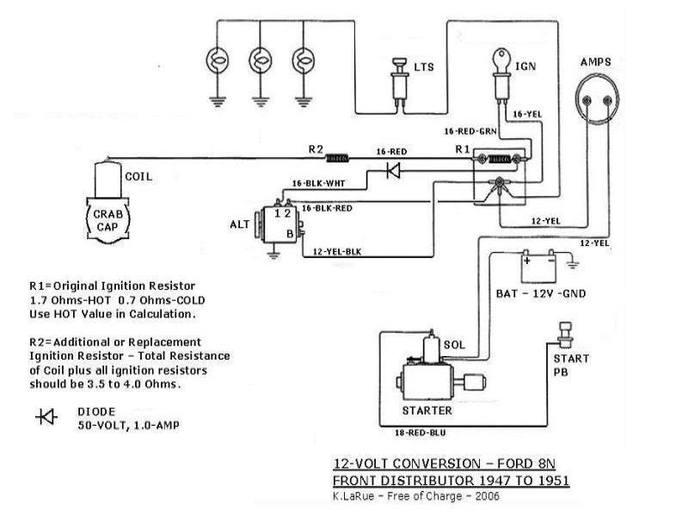Ford 8n 12v Conversion Wiring Diagram is a crucial tool for anyone looking to upgrade their Ford 8n tractor to a 12-volt electrical system. This diagram provides a detailed outline of how the various components of the electrical system are connected, helping users understand the wiring layout and make the conversion process smoother.
Why Ford 8n 12v Conversion Wiring Diagram are essential
Understanding the wiring diagram is crucial for the successful conversion of a Ford 8n tractor to a 12-volt system. Here are a few reasons why these diagrams are essential:
- Helps in correctly identifying the various components of the electrical system.
- Guides users on how to connect the components in the right sequence.
- Ensures a safe and efficient conversion process.
How to read and interpret Ford 8n 12v Conversion Wiring Diagram effectively
Reading and interpreting the wiring diagram correctly is key to a successful conversion. Here are a few tips to help you understand the diagram effectively:
- Start by familiarizing yourself with the key symbols and codes used in the diagram.
- Follow the wiring paths carefully to understand how the electrical components are connected.
- Refer to the legend or key provided in the diagram to decode any abbreviations or symbols.
How Ford 8n 12v Conversion Wiring Diagram are used for troubleshooting electrical problems
In addition to aiding in the conversion process, the wiring diagram can also be used for troubleshooting electrical issues. Here’s how:
- Identify the specific circuit or component causing the problem by referring to the diagram.
- Check the wiring connections and components to ensure they are properly connected as per the diagram.
- Use a multimeter to test the continuity and voltage at various points in the circuit as indicated in the diagram.
When working with electrical systems and using wiring diagrams, safety should always be a top priority. Here are some important safety tips and best practices to follow:
- Always disconnect the battery before working on any electrical components.
- Wear insulated gloves and safety goggles to protect yourself from electrical shocks.
- Avoid working on the electrical system in wet or damp conditions to prevent short circuits.
- Double-check all connections and wiring before powering up the system to avoid any mishaps.
Ford 8n 12v Conversion Wiring Diagram
Wiring Diagram Ford 8n 12 Volt Conversion

[DIAGRAM] Ford 8n Voltage Regulator Diagram – MYDIAGRAM.ONLINE
![Ford 8n 12v Conversion Wiring Diagram [DIAGRAM] Ford 8n Voltage Regulator Diagram - MYDIAGRAM.ONLINE](https://i1.wp.com/images-na.ssl-images-amazon.com/images/I/71TSsNqpG-L._SL1280_.jpg)
12V Ford 8N 12 Volt Conversion Wiring Diagram Database

12v ford 8n 12 volt conversion wiring diagram – MdDayton
8n Ford Tractor 12 Volt Wiring Diagram

8n 12 volt conversion wiring diagram
